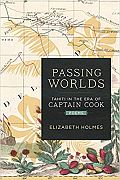We came as boyshalf-starved, unschooled.Seamen’s sons, at seaby twelve, or else we’d beenapprentice-slaves todrapers and cobblers, insmithies and mills.An easy choice,the high-rigged ships,the hustle and jangleof foreign ports.No sort of lifedid we have on land.But all of us fear the sea.In heaving the Anchor out of the Boat Mr Weir Masters mate was carried over board and to the bottom. Hove up the anchor by the Ship as soon as possible and found his body intangled in the Buoy-rope.The sun and wind arehammer and tongs,the deck our daily anvil.Our hides are pickled,tanned and calloused,our sweat is brine,our souls are leather.The bark of the captainis backed by the lash,but more than that,all of us fear the sea.Peter Flower seaman fell from the main shrouds into the sea and before any assistance could be given him was drown’d, in his room we got a Portuguese.We shake the verminout of our breadand chew the onesleft in it. We sleep half-smothered, hammocksstacked. The cat is fairlystuffed with rats, and stillthey riddle every cask.Some of the menare like to rats.We have our code.But only a mangone off his headfears anythingmore than the sea.Wm Greenslade Marine, a raw young fellow, quiet and industrious, threw himselfoverboard and was not miss’d till much too late—driven by a trifling incident—incredible, the powerfull effects that shame can work upon young minds.Some of us likethe stars in the blackthe silent watchthe billow and snapof filling sails.Some of us live forthe grog and the rumand the skirts in every port.But all are waryas long as we liveon planks above the sea,for hardly a onecan swim a yard,nor half a minutekeep from outhis panicked lungsthe softly murderous sea.
Sailors
Feature Date
- September 6, 2018
Series
Selected By
Share This Poem
Print This Poem
Copyright © 2018 by Elizabeth Holmes
All rights reserved.
Reproduced by Poetry Daily with permission

Baton Rouge, Louisiana
Deeply researched and deeply felt, Passing Worlds is a poetic reimagining of the first encounters of Europeans and Tahitians during the historic voyages of Captain James Cook…. Examining both imperialism and exploration, Holmes illuminates the cultural exchanges, clashes, miscommunications, and friendships that developed during these European sojourns, including the Tahitians’ impressions of their strange visitors, the ways the British played into island politics, and how the “discovery” of Tahiti—with its easy life, absence of poverty, and liberal sexuality—influenced European ideas.
Part narrative, part lyric, the poems speak in multiple voices, bringing to life a fascinating cast of characters, from the black servants and common sailors to the aristocratic naturalist Joseph Banks, a female Tahitian leader, and an island girl caught in a system of sexual commerce. Marking the 250th anniversary of the launch of the Endeavour, which carried Captain Cook on his first voyage around the world, Passing Worlds is a poignant and imaginative depiction of a key point in a historic voyage and of a society whose delicate balance was altered and finally devastated by the impact of a far different one.
“Elizabeth Holmes’s compelling narrative of early expeditions to Tahiti, as well as her emotionally complex depictions of both the explorers and the islanders, make Passing Worlds a riveting and unforgettable book. In their masterful weavings of documentary material and lyrical transformations, the poems invite us to ponder the central importance of cultural difference and miscommunication in our understanding of history. With both fascination and dismay, we follow the ill-fated incursions of one world into another.”
—Martha Collins
Poetry Daily Depends on You
With your support, we make reading the best contemporary poetry a treasured daily experience. Consider a contribution today.



